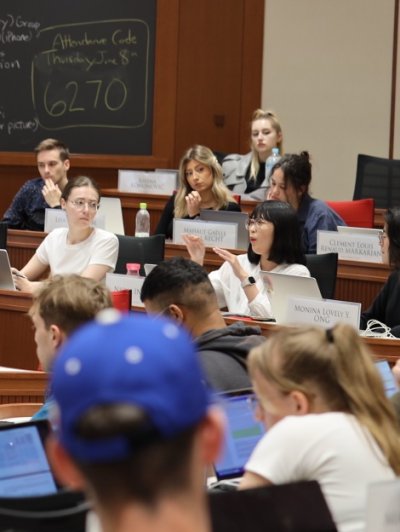Four-day courses over two weekends
EMBA courses require only two weekends to complete, making it possible to obtain an official, internationally certified EMBA in as little as one year. With the latest business cases utilised as course materials, practical learning is achieved through discussion from various management perspectives giving students real solutions that can be implemented the following Monday.
The EMBA curriculum is designed to help students acquire the ability to oversee the entire management process, which is necessary for executives and managers. In class, students build on their own answers to the issues raised in their preparatory studies, seeking solutions by incorporating the opinions of the faculty and others in group sessions and class discussions. Through these discussions, students are able to acquire management judgment skills rooted in a broad perspective and deep analytical skills. Students learn systematically from the basics to their application, culminating in their final project: an original case study coalescing the lessons learned throughout the program.
-

Fundamentals
Students learn foundational MBA skills such as strategic thinking, conceptualization, and logical thinking in order to polish their overall perspective as managers.
- Strategic Thinking
- Behavioral Economics
- Business Analysis
-

Leadership
The course is based on the internal control system of a sustainable company and teaches specific methods of leadership to revitalize the organization.
- Designing Organizations
- Leading Multicultural Teams
- Aligning Strategy and Sales
- Internal Control System & Risk Management
- Strategic Negotiation
- Strategic Managerial Accounting
-

Accounting & Finance
In addition to acquiring basic knowledge of finance, the course aims to improve strategic financial analysis skills for management decision-making, including an overview of investment and M&A.
- Crisis Management and Leading Change
- Leading Global Business
- Strategic Corporate Finance
-

Management
This course aims to improve decision-making and strategy building skills in business through practical management strategies and evolutionary leadership.
- Organizational Behavior & Leadership
- Changing the Game
- Driving Digital Strategy
-

Marketing
Students learn problem-solving skills and growth potential through innovation in marketing, and production and operations management.
- Marketing Management
- Technology & Operations Management
- Marketing Communication
-

Governance
Students will learn how to build an organization with competitive advantage and how to realize sustainable growth in human resources and corporations based on corporate ethics and social responsibility.
- Risk Management and Sustainability
- Corporate Governance
- Financial Market Simulation
- Financing of Innovation
- Strategic Change Leadership
- Corporate Mission & Strategy
-

Consulting
All students are required to write a case study as a final project. As a general rule, students will center their research on a company in which they are employed and write about the company's current situation, issues, and success factors from the perspective of the management.
Case Method
The three-stage case method learning process
.png)
L.A. Mauffette-Leenders, J.A. Erskine, and M.R. Leenders (2001), Learning with Cases 2nd ed., Ivey Publishing.
Analyzing skill; logical thinking; presentation skill; leadership skill; management requires wide-ranging skills. NUCB Business School develops these using the case method repeating the three major steps: preparation, group discussion, and class discussion.
Experience the case method
-

-

-

-
13:30-15:30 UTC+9
- Entry Open
- Nagoya
Global MBA Open Campus in Nagoya: Admissions Guidance, Campus Tour, Q&A


 Brochure
Brochure
 Info Session
Info Session
 Online Application
Online Application
 MBA Basics
MBA Basics





